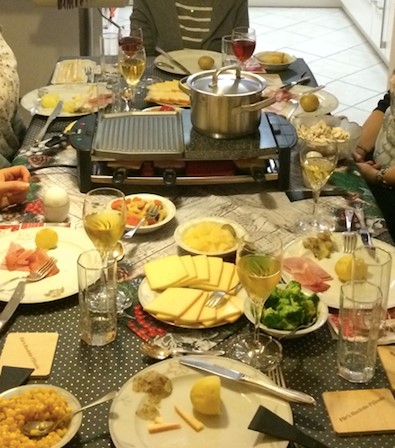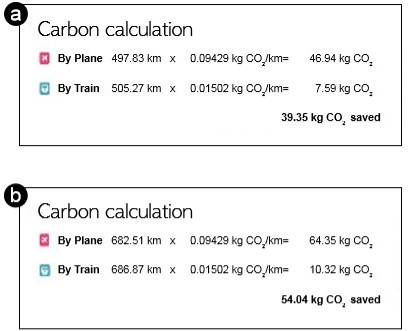With the recent launch of the University of Cambridge Sustainable Food Policy, Kirsten Van Fossen is excited to see what new innovations we can come up with on the path of sustainable food innovation in 2018. Here she blogs about her Christmas away from home.
Nearly a year ago, I started to think about the idea of spending this past Christmas away from home. I’d long been planning to wrap up my PhD in February and given that home is in the US, I didn’t think it would be worth the cost to fly back and forth within such a short time period. The primary cost on my mind was the carbon. I imagine that the people reading this blog post have similar worries. The University of Cambridge fosters a community that is both international and deeply concerned about climate change. Flying home is never an easy decision. Given the new-year-resolution social media posts that have fluttered across my feeds, I see that many of my peers share my dilemma. How do we easily balance all of these values? Easily, I don’t know...
What I do know is that trying to balance multiple values offers a design constraint that often leads to interesting results. I vowed not to fly these holidays, but I also realized that after months of solitary writing in the Cambridge libraries, a quiet Cambridge Christmas would not have been right either. I decided to take the train over to Germany to visit friends for the holidays. Then the GFSI travel grant call for proposals came out, and I applied to present my research at the Scandinavian universities I had long wanted to visit. Thanks to the funding help from the Isaac Newton Trust, I was able to extend my journey to meet with researchers in Sweden and Denmark. The solution to my Christmas dilemma grew into something better than I could have imagined.
As a foreigner at Christmastime in Germany, Denmark and Sweden, I was hyper aware of the traditions that differed from my own. I joined a German friend’s family for their Christmas Eve dinner featuring table-top raclette, which I learned has become a popular choice for Christmas Eve in Germany. Accustomed to seeing a ham at the centre of the table at Christmas, this was new for me. I heard multiple people around the table express their love for Christmas raclette, adding the reason that “everyone can have what they want.” With table-top raclette, each person has a little, personal tray to make their raclette creations. Once assembled, the tray goes into the table-top oven until cooked to satisfaction. All sorts of conversations ensue during the waiting periods. As a researcher interested in food, I remember the food-related conversations particularly well. We shared ‘recipes’ and tips with one another to produce the best raclette creations. We boasted about the surprisingly good combinations we discovered.

My research has examined the values that are tied up in food and those Christmas Eve dinner table interactions highlighted many of those values. Food preparation is taught and learned with others. It can enable a social experience. Food contributes to our identity. We express our individuality and creativity through food. That Christmas Eve dinner also exemplified the power of creativity amidst constraints. With the ingredients we had set out in front of us on the table—pickles, mushrooms, charcuterie, pineapple, pear and beetroot—we were able to concoct innumerable innovative creations and we had a very good time doing it.
Creativity amidst constraints was a theme that also came up in my conversations with researchers at the University of Gothenburg in Sweden. They were excited to share stories about the innovative meals and ideas that have stemmed from their university’s commitment to reduce food waste. In Cambridge, we too have started to see food innovations around the sustainability theme. With the recent launch of the University of Cambridge Sustainable Food Policy, I am excited to see what new innovations we can come up with on the path of sustainable food innovation in 2018.

loco2.com’s calculation of the carbon saved by taking train versus flying a) London to Cologne, Germany and b) Cologne to Helsingborg, Sweden
Kirsten Van Fossen is a PhD student at the Institute for Manufacturing studying business model innovation in the context of early stage healthy food ventures. Her research aims to develop key insights about the opportunities and barriers related to internalising the health outcomes of food systems.

